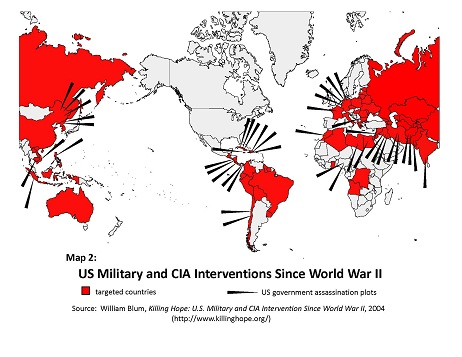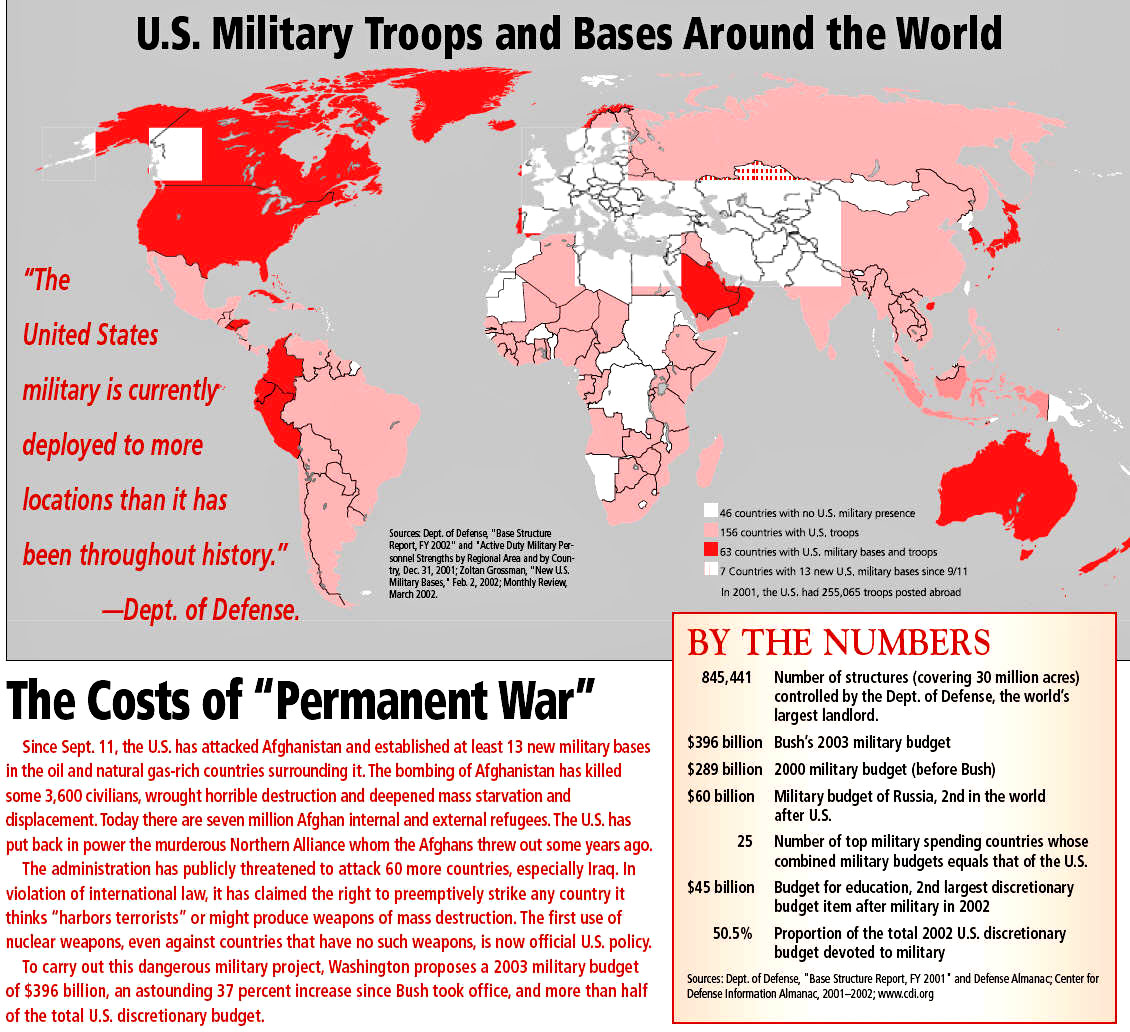
(July 12, 2021) — When, and for what reasons, should the United States use military force?
Since World War II, US military action has led to wars of choice, millions of lives lost, and trillions of dollars wasted. As an organization that advocates for a more peaceful and just foreign policy, Massachusetts Peace Action asserts that war and violence must be a last resort and only be used in accordance with international law.
Massachusetts Peace Action opposes any and all US unilateral, and US-led multilateral, military interventions that are not in accordance with international law and the sovereignty of nations. .
ÓThis opposition includes direct US ground and air operations, funding of paramilitary forces, covert operations, and military support of repressive regimes. No international military action is permissible unless it conforms to the United Nations charter: that is, only in self-defense in response to an attack or when explicitly authorized by the UN Security Council. This is not to say that we would support every use of military force authorized by the Security Council — we did not in the cases of Libya and Yemen. We refuse to support all military action in support of hegemony over other countries’ fate.
We also condemn the imposition of broad economic sanctions — especially when the US illegally coerces enforcement on third-party nations — that punish populations because their government is considered unfriendly to the US.
We are not “isolationists.” Nor are we callous in the face of suffering around the world, or indifferent to democratic aspirations. But we recognize that even in extreme situations of humanitarian crisis, US interventions do more harm than good.
Given the long history of US imperial foreign policy, corporate interests driving our policy, and the ideological power of American exceptionalism and white supremacy, arguments that US intervention is in support of some humanitarian purpose ring false. “Humanitarian intervention” is often just a means of hiding the roots of our interventions in support of hegemonic goals.
Under what circumstances would we support US unilateral military intervention abroad? Our answer should be unequivocal: NEVER!

Tragically, bad things happen in the world. Political crimes, dictatorial governments, and ethnic strife have caused untold suffering for millions of people. But far from solving these crises, US military intervention is more often than not at the root of them. This is especially true in the Middle East and Latin America.
US intervention contributed to destroying a secular modernizing government in Afghanistan starting in 1979 and continuing through the 1980s, then perpetuated occupation from 2001 up to the present.
The US laid the groundwork for religious authoritarian rule in Iran by overthrowing the Mossadegh government in 1953 and backing the dictatorship of the Shah, and has sanctioned Iran and maintained a posture of enmity continuously from 1981 to the present. It helped to install the Saddam Hussein dictatorship in Iraq, aided his invasion of Iran and facilitated, then and covered up his war crimes, including the use of chemical weapons, then invaded Iraq and overthrew him, and continues to occupy the country today.
The US-backed extremist sectarian rebels and foreign jihadists in Syria, and is itself now occupying a large swath of Syrian territory, using brutal sanctions to starve and freeze Syrians and blocking the reconstruction of their country. The US finances and arms Israel in its occupation and annexation of Palestinian land and aggression against its neighbors. US military aid, arms sales and military bases undergird dictatorships and absolute monarchies around the region.
The US government has acted to overthrow numerous governments in Latin America including Guatemala, Cuba, the Dominican Republic, Brazil, Chile, Nicaragua, Haiti, Panama, Bolivia, Honduras, and Venezuela. It has propped up and facilitated horrific fascist regimes in these and others such as Argentina, Colombia, El Salvador, and Paraguay.
We deplore crimes committed by the undemocratic governments of Israel, Egypt, Jordan, Saudi Arabia, the UAE, Bahrain, Oman, and acknowledge that undemocratic acts of a similar scale may well have been committed in Iraq, Syria, Lebanon, and Iran. Iran, as well as Syria.However, we do not advocate that the US or its allies pursue violent regime-change interventions against any of them. Instead, we demand the US stop supporting many of those bad actors with billions in annual aid, and arms sales.
The US claims to be “the indispensable nation”, to uphold a “rules-based international order”, to promote democracy, and to pursue “humanitarian intervention”. These claims are hollow. US unilateral military interventions, covert actions, and brutal sanctions violate international law and have led to the death, displacement, development reversals, poverty, and hunger of multitudes in the Middle East, Asia, Latin America, and Africa. The TThe US has failed to ratify the Rome Statute that established the International Criminal Court, and many other international treaties, speaking volumes about the US reckless defiance of international humanitarian law and international opinion.

There is an alternative to this pattern of US abuses which does not require that we ignore the suffering of peoples. Diplomacy and a strengthened international security system based on a democratized United Nations that oversees regional peacekeeping forces is the only vehicle for addressing humanitarian crises or political criminal behavior that constitutes war crimes. While achieving consensus at the UN is not easy, the US practice of exploiting humanitarian crises or creating them for hegemonic interests — often to advance the interest of our military industrial complex or the the corporate masters of the US state — makes consensus and conflict resolution impossible.
Written by Massachusetts Peace Action’s Middle East Working Group; Approved by the Executive Committee July 9, 2021